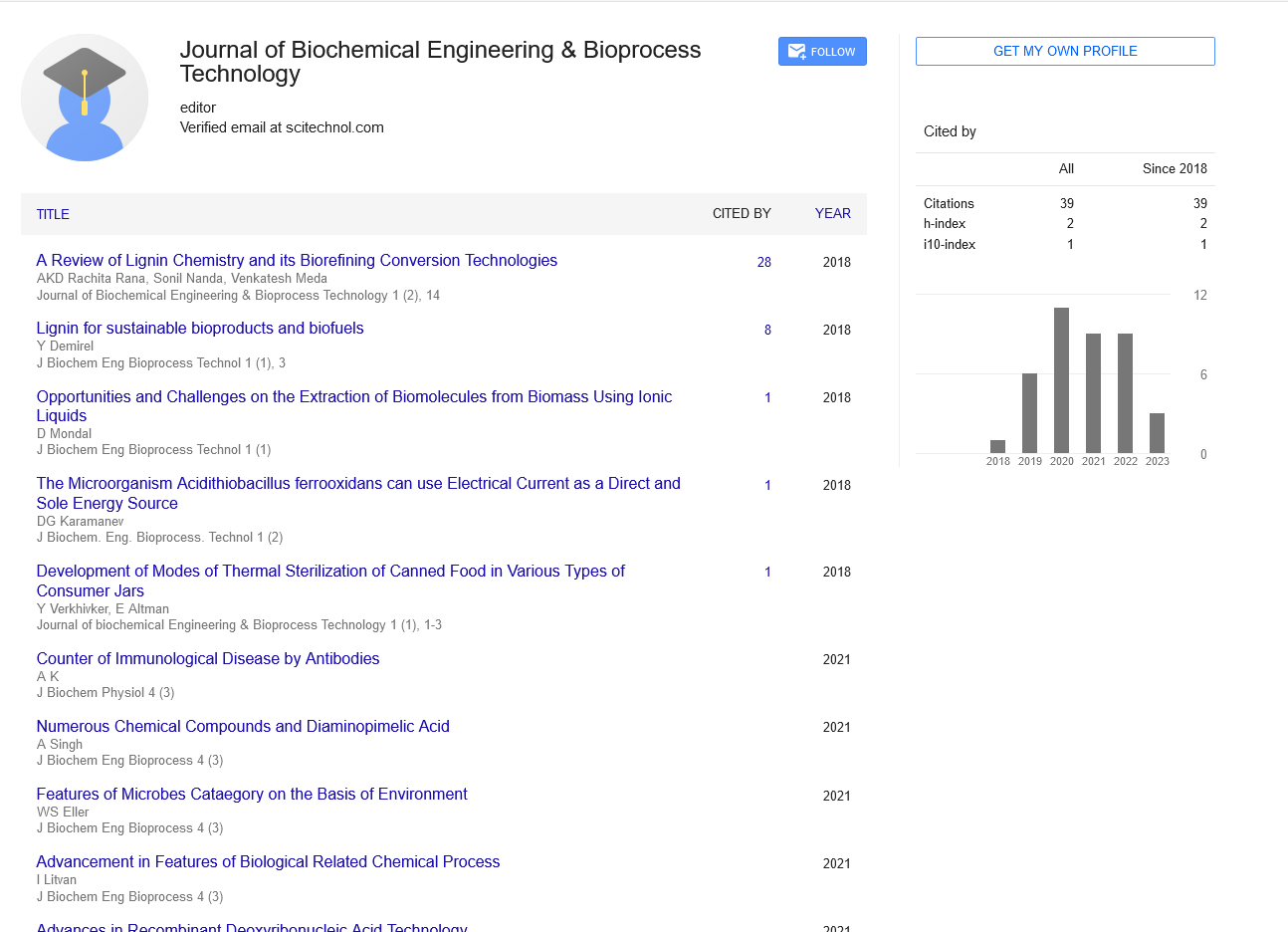Kinetics study, Pyrolysis and Catalytic cracking of waste cooking oil for biofuel production
Fekadu Mosisa Wako
Academia Sinica, Taiwan
: J Biochem Eng Bioprocess Technol
Abstract
The use of waste cooking oil (WCO) for biofuel production has been a focus of concern now days with its environmental benefits. Non-isothermal kinetics of WCO using thermogravimetric analysis (TGA) has been studied under inert atmosphere with in a temperature range of 30–800°C at several heating rates. According to TGA results, active thermal decompositions of WCO were obtained within temperature range of 318–500°C. Model-free iso-conversion kinetic methods such as Friedman (FM), Kissinger Akahira-Sunose (KAS) and Flynn-Wall-Ozawa (FWO) methods were used to determine the apparent activation energy of WCO degradation. The average activation energy obtained was 243.7 kJ/mol (FM), 211.23 kJ/mol (KAS) and 222 kJ/ mol (FWO). Moreover, thermal and catalytic cracking of WCO for the production of liquid fuels has been studied in semi batch system under N2 atmosphere at a temperature range of 400–500°C. Catalytic cracking were performed using 1, 2, 4, 6 and 8 wt/% Zirconium oxide as a catalyst at heating rate of 10 °C/min. At the same reaction conditions thermal cracking were performed and the influences of temperature, heating rate, residence time and catalyst loading on both cracking reactions have been studied. An optimum yield of organic liquid product (OLP) of 72wt% (thermal cracking) and 84wt% (catalytic cracking) were obtained at optimum reaction parameters. Organic compounds and functional group present in OLP has been studied using Gas chromatography–mass spectrometry and Fourier Transform Infrared Spectroscopy. Physico– chemical properties of OLP were studied. The catalyst has been recovered and confirmed to be used for further reactions.
Biography
E-mail: fikad430@gmail.com
 Spanish
Spanish  Chinese
Chinese  Russian
Russian  German
German  French
French  Japanese
Japanese  Portuguese
Portuguese  Hindi
Hindi 